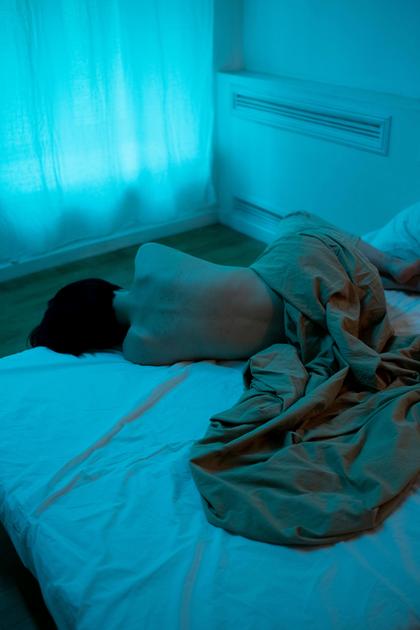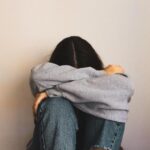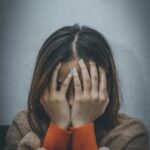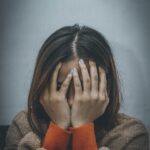Have you ever noticed how hair loss and sleep struggles go hand in hand for many women? It’s a silent battle, often ignored in the hustle and bustle of life. As we navigate through our 30s and beyond, issues like fatigue, hormonal imbalances, and anxiety can lead to restless nights and thinning hair. You’re not alone in this journey; countless women share your experience, seeking answers and relief. In this article, we will explore the intricate connection between sleep disturbances and hair loss, shedding light on solutions that can empower you to reclaim your confidence.
Understanding the Link Between Sleep and Hair Loss
Many women experience hair loss at some point in their lives, and surprisingly, the quality of sleep can play a significant role in this issue. Studies have shown that inadequate sleep can lead to a range of health problems, including hair loss. Sleep allows for the body to repair and regenerate cells, including those responsible for hair growth. Thus, if you’re not getting enough rest, your hair might suffer as a result.
When we sleep, our bodies work to restore vital nutrients and regulate hormones. A good night’s sleep is especially important for women, as hormonal fluctuations from menstruation, pregnancy, and menopause can already make managing hair health challenging. Taking care of your sleep now can benefit your hair and overall wellness.
Hormonal Changes in Women: A Hidden Factor
The connection between sleep and hair loss in women often goes unnoticed due to the complex nature of hormonal changes that occur throughout a woman’s life. As women age, they experience shifts in estrogen and progesterone levels. These hormones significantly influence hair growth cycles.
During menopause, for instance, many women report increased hair thinning due to a decrease in these crucial hormones. Additionally, stress can exacerbate hormonal imbalances, making it vital to address sleep issues that may arise during these transitions. Lack of sleep can lead to elevated cortisol levels, further hindering your body’s ability to maintain healthy hair.
How Stress Impacts Sleep and Hair Health
Stress is a common trigger that can impact both sleep and hair health. When you’re under stress, your body produces cortisol, a hormone that can disrupt sleep patterns. Poor sleep quality can lead to excessive hair shedding. The emotional toll of stress makes it even harder to get the restful sleep you need, creating a vicious cycle.
Learning to manage stress through mindfulness, relaxation techniques, or talking to a friend can be beneficial. If you notice your stress levels affecting both your sleep and your hair, it’s time to take a step back and evaluate your daily routine and mental health.
Signs of Sleep Deprivation and Its Effects
Pay attention to the signs of sleep deprivation, as they can surface in various ways. You might experience:
- Fatigue: Constant tiredness can leave your body unable to keep up with the demands of hair growth.
- Mood Changes: Irritability and anxiety can increase when you don’t get enough sleep.
- Cognitive Decline: Difficulty concentrating can arise, making daily tasks challenging.
- Physical Symptoms: Noticeable changes in your hair’s thickness or texture can occur.
If these symptoms sound familiar, it’s essential to prioritize your sleep and look for ways to improve it. Small changes can lead to significant improvements.
The Role of Nutrition in Hair and Sleep Quality
Another critical yet often overlooked aspect is nutrition. What you eat can significantly affect your sleep quality and in turn, your hair health. Foods rich in vitamins and minerals such as zinc, iron, and omega-3 fatty acids are essential for maintaining healthy hair. Additionally, incorporating sleep-promoting foods, like those high in magnesium and tryptophan, can make a big difference.
Consider adding more leafy greens, nuts, seeds, and lean proteins to your diet. Stay hydrated and limit caffeine and sugar intake, especially close to bedtime. Evaluating your diet might reveal areas for change that can enhance your sleep and promote healthier hair.
Practical Tips for Improving Sleep Hygiene
Improving sleep hygiene can have an immediate impact on both your sleep quality and hair health. Here are some practical tips:
- Establish a Routine: Go to bed and wake up at the same time every day.
- Limit Screen Time: Avoid screens one hour before bedtime.
- Create a Comfortable Sleep Environment: Keep your bedroom dark, quiet, and cool.
- Use Relaxation Techniques: Try meditation or deep breathing exercises.
These changes can help foster a restful environment conducive to sleep and ultimately improve hair health.
Holistic Approaches to Reduce Hair Loss
If you’re dealing with hair loss, consider holistic approaches that treat both mind and body. Incorporating mindfulness practices and yoga into your daily routine can help reduce stress levels, promote better sleep, and nurture your overall well-being.
Holistic treatments can include:
- Acupuncture: This ancient practice may help to boost blood flow to the scalp.
- Aromatherapy: Essential oils like lavender can promote relaxation and improve sleep.
- Herbal Supplements: Certain herbs are believed to support hair health and reduce anxiety.
Explore these options to see what resonates with you and your lifestyle.
Personal Stories: Women Overcoming These Challenges
Many women have faced the perplexing challenge of balancing hair health with sleep quality. Take Anna’s story, for example. She struggled with thinning hair and insomnia after becoming a new mom. By prioritizing sleep and following a nighttime routine, she found not only relief from her sleep deprivation but also noticed her hair feeling thicker and healthier. Hearing such stories can be inspiring and motivating for those fighting similar battles.
Stories like these remind us that we’re not alone in our experiences and highlight the importance of addressing underlying issues together.
Expert Opinions: What Doctors Say About This Connection
Health professionals recognize the intricate relationship between sleep and hair health. Many dermatologists emphasize the need for adequate sleep in order to see improvements in hair loss. Dr. Smith, a dermatologist, notes, “Sleep is when the body repairs itself. If you’re not allowing that process through proper rest, you may face setbacks in hair growth.””>
Consulting with a healthcare professional can provide you with personalized insights and advice on how to improve both your sleep and hair health.
Finding Hope: Steps to Rejuvenate Hair and Sleep
Finding hope lies in making small changes every day that promote better sleep and healthier hair. Remember that each step you take gets you closer to feeling balanced and revitalized.
Many women have already discovered simple, effective strategies to tackle these issues without resorting to heavy medications. See here how many women are solving this without heavy pills.
Believe that you, too, can overcome these challenges. With patience and persistence, the cycle of poor sleep and hair loss can be transformed into a new chapter of vibrant health and beauty. You can reclaim your nights for restorative sleep and your mornings for beautiful, healthy hair.
Remember, you are not alone. Others have walked this path before you, and through shared experiences, inspiration can spark action.







